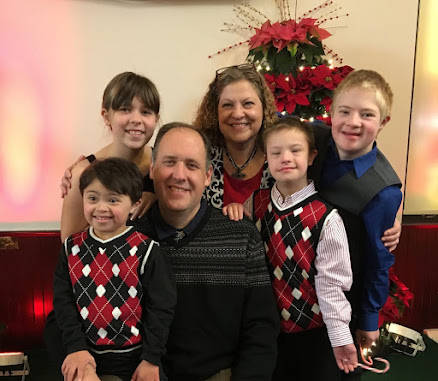I have been in a devotional study of the Classic Christian writers of the faith. The light
that beams through the contribution to spiritual development and to
the work of the kingdom opens the eyes of the heart, soul, and mind. Power,
grace, a humble spirit, and listening have touched me as I have
studied them in depth through the classic devotions. I am closer to
the six great streams of the Christian life; “the prayer-filled
life,” the virtuous life,” “the spirit-empowered life,” the
compassionate life,” “the word-centered life,” and the
“sacramental life” because of the writings. Each of the great
streams fit into the six great traditions of the church as,
“contemplative, holiness, charismatic, social justice, evangelical,
and incarnation."
I am a better follower because I have tasted the streams where a
Christ-follower grows in faith and spiritual formation.
God
maneuvered opportunities for each of these classic writers to bring
understanding to those. These dedicated and committed individuals are
testimonies for purposeful character development. For example,
Brother Lawrence demonstrates an ability to embrace a life of
experiencing the presence of God in every facet of life. Brother
Lawrence grants us the true goal to live out our daily devotions and
prayers during every aspect of our existence.
In our course forum, I wrote about when I was an undergrad student at Pacific Christian College. I was given a small little 20 page booklet written by Don DeWelt titled, "Sweet Hour of Prayer." I read, meditated, journaled and prayed through that little booklet at least five times a week for a year. It was a simple guide yet making the commitment was a challenge. It was worth it. During that time I came to a new awareness of God in my life and his presence in my surroundings. I developed a new focal point to pray beyond the hour of the exercises to a place of praying short prayers throughout the day.
Brother
Lawrence writes, “I have since given up all forms of devotions and
set prayers except those which are suitable to this practice. I make
it my business only to persevere in his holy presence wherein I keep
myself by a simple attention and general fond regard to God, which I
refer to as an actual presence of God.”
Lawrence is stating that he has made it his life's practice to be in
recognition of God's presence in every aspect of his existence.
Practicing the presence of God helps me in understanding that my
connection with God is truly a relationship.
For
each of these classic writers, I have noticed a keen awareness of the
presence of God in their lives. Their awareness of the Holy Spirit
within them is not limited to a time or place, but that the Holy
Spirit is sharing and working in my life. Many worship leaders will
start a worship service by declaring that we are about to enter into
the presence of God. Dr. Wayne Shaw of Lincoln Christian University
and I had a conversation a few years ago about how believers should
never leave the presence of God. In reality, the Holy Spirit dwells
within us. In corporate worship we enter into a time of conscience
awareness and recognition of God's presence within our lives,
consequently a believer never exits the presence of God.
Another
classical devotional contributor who grants insights for the believer
in the awareness of God is Teresa Avila. Teresa lived a very
contemplative life. She also reminds the believer that God is anxious
for us to grow closer to him. She reverberates a message of hope in
searching for God that is needed in every generation. She writes,
“God is so anxious that we should grow close to him that he calls
us unceasingly to approach him.”It is here a familiar awareness of God restores a quest within us of
wanting to know and be known by God.
Teresa
also writes on how temptation separates us from God. It is our sinful
nature which removes us from God's presence. She gives some solid
advice on resisting temptation through a gentle approach. She states,
“when you feel the beginnings of temptation, do not fight back with
strenuous efforts, but rather, gently begin a time of prayer and
recollection.” In other words, instead of hitting yourself with guilt for the
temptation, initiate a time of clinging to God and the temptation
will cease. She does not talk about how easy ti will be, but rather
she addresses the relief and release that comes after the practice is
implemented.
Although lacking in my own ability, the awareness of
the presence of God brings order to the chaos that lives in my sinful
nature. The priority of practicing God's presence restores my heart,
mind, soul, and strength to a place that God intended for my
creation. That I would know God as he is to be known through Christ
restores my fallen life. For me, this truth is the ultimate goal of
transformation.
I look forward to a new heart in heaven. I know that as
Jesus transforms me from glory to glory I will experience a restored
heart that is not prone to wander. I will no longer have the sinful
nature. I will know sin in the past tense and the practice of God's
presence will no longer be a need. I will thrive forever in God's
presence. The most glorious aspect of practicing the awareness of God
is that I can live the presence of God while living in my fallen
flesh and experience what is to come. The experience is the
opportunity to embrace the abundance of life. The abundance of life
through practicing God's presence in the ordinary daily existence is
but a glimpse of what is ahead in the future glory.
The
prayer filled-life establishes the awareness of God in praying to him
without ceasing. Julian of Norwich stated: “Just as our flesh is
covered by clothing, and our blood is covered by our flesh, so are
we, soul and body, covered and enclosed by the goodness of God.” The keen awareness of God also brings with it an awareness of God's
goodness. His goodness reminds us that we are also to be good. The
life of prayer will define a believer's action in generosity and
goodness for through the gift of prayer, one is reminded how truly
good our God is.
Ultimately
the awareness of God and the keen knowledge that God is working in
our lives brings us to a new understanding of how we should live in
response to God. Dietrich Bonhoeffer wrote, “Christian Brotherhood
is not an ideal with which we must realize; it is rather a reality
created by God in Christ in which we may participate.”
A Christian is an active servant. These great classic writers teach
us to live the Christian life and remind us that faith is not a
philosophy, but an active way of life. It is my goal to go out and do
likewise.
As we glance out the windows that are opened through
the classic devotional writers, it is God's goodness and active
spirit that guide us to a better way. Therefore, we make it our goal
to please him by reaching for his renewed faithfulness to us and
clinging to his mercies that are new every morning. God is a good
God. Thus, we go and shine as his lights to our world.
You know I love ya, Don
















